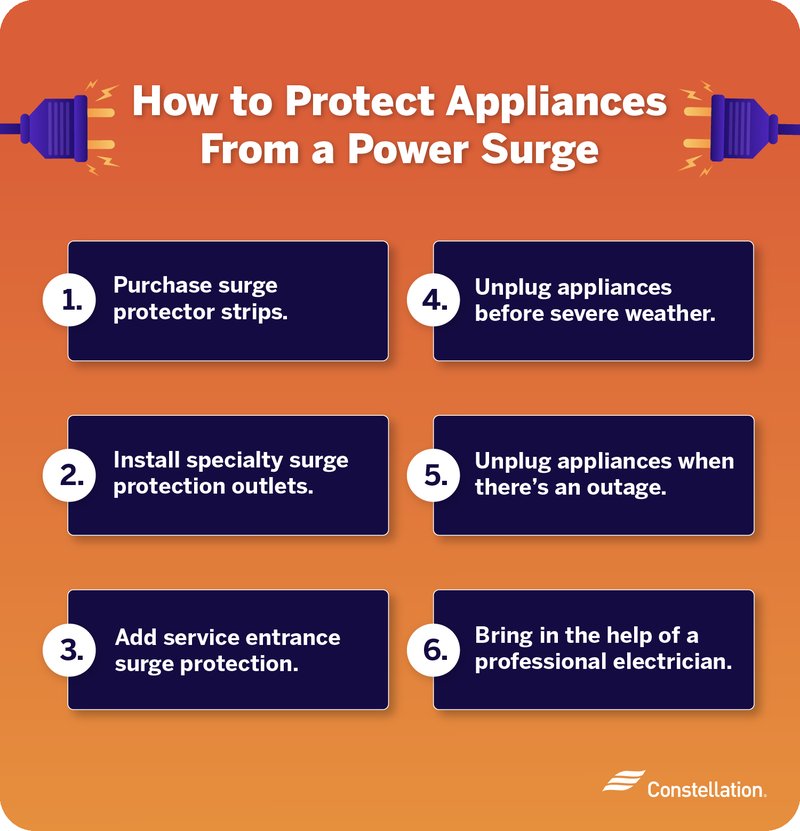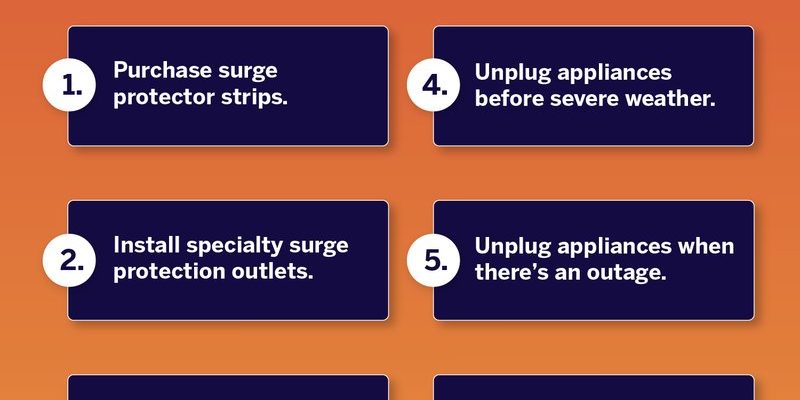
Here’s the thing: protecting your appliances isn’t just about keeping the lights on; it’s about safeguarding your investments. You might think of your appliances as part of your home’s DNA—the refrigerator keeps your food fresh, the washer and dryer handle your laundry, and let’s not forget about that trusty oven. If a power surge strikes, those vital pieces could suffer, costing you time and money. So, let me explain how you can stand guard and keep your home running smoothly.
Understanding Power Surges
To effectively protect your appliances, you first need to understand what a power surge is. Think of it as a sudden increase in electrical voltage that can happen due to various reasons. Common causes include lightning strikes, sudden changes in electricity use in your area, or even faulty wiring in your home. When these surges occur, they can overwhelm your appliances, leading to burned-out circuits or even complete failures.
Power surges can be brief, lasting only a fraction of a second, but their impact can be lasting. Imagine flicking a light switch on and off quickly—the light bulb might flicker, but an appliance might not recover as easily. In a place like Phoenix, with its intense summer storms or even fluctuations in grid power, understanding the local risks is vital. So, knowing what power surges are is the first step in taking action against them.
Invest in Surge Protectors
One of the easiest ways to protect your appliances from power surges is to use surge protectors. Think of these devices as the helmets and pads your favorite football player wears; they’re designed to absorb shocks and keep your appliances safe. A surge protector works by diverting excess voltage away from your devices.
When shopping for surge protectors, you’ll find different types. Here are a few you should consider:
- Power Strip Surge Protectors: These are the most common and are designed to protect multiple devices simultaneously.
- Whole-House Surge Protectors: Installed at your main electrical panel, these protect every device in your home.
- TV and Computer Surge Protectors: Specifically designed for electronics, these usually come with additional features to enhance performance.
Each type serves a distinct purpose, so think about how many devices you need to protect. For instance, if you have a home theater system, you definitely want a dedicated surge protector to shield it from voltage spikes.
Regular Maintenance of Appliances
Keeping your appliances in good working order can also help them withstand power surges. Just like how a car needs regular tune-ups to run smoothly, your appliances benefit from consistent maintenance.
Start by checking for loose cords, frayed wires, or any signs of wear and tear. For appliances like refrigerators and ovens, cleaning the coils can help them run more efficiently. This includes removing dust and debris that can cause overheating.
Additionally, consider scheduling professional inspections for larger appliances. A technician can catch potential issues before they become significant problems. By being proactive with maintenance, you can reduce the chances of an appliance failing during a power surge.
Use Uninterruptible Power Supplies (UPS)
If you have sensitive electronics, such as computers or home entertainment systems, investing in a Uninterruptible Power Supply (UPS) might be wise. A UPS is essentially a battery backup that keeps your devices running during power outages and protects them from surges.
When a power surge occurs, the UPS kicks in, providing a stable source of electricity and preventing damage. For example, if you’re in the middle of an important video call or gaming session, a UPS can ensure a smooth experience without interruptions.
Make sure to choose a UPS with sufficient capacity for the devices you want to connect. This way, even during a surge, you can keep your devices safe and operational.
Educate Household Members
You might be surprised how much of a difference it makes to educate everyone in your home about electrical safety. It’s like teaching kids to put on their helmets when riding bikes—awareness can prevent accidents.
Discuss the importance of turning off appliances during a storm or when leaving home for an extended period. Simple actions like unplugging devices can go a long way in reducing your risk.
Creating a household plan for stormy weather can also help. For example, you might decide together to unplug sensitive electronics when storms are forecasted. These small changes in habits can lead to significant improvements in your appliance longevity.
Consider Professional Installation of Surge Protection
If you want to take your surge protection to the next level, consider having a professional install a whole-house surge protector at your electrical panel. This solution protects all your appliances, giving you peace of mind knowing everything is covered.
During installation, a qualified electrician will assess your home’s current electrical setup and recommend the best type of surge protector. Investing in a whole-house protector might seem daunting, but it can save you from costly repairs and replacements in the long run.
Plus, if you live in an area like 85001, where storms and power fluctuations are common, this added layer of protection could make a world of difference.
Stay Informed About Local Weather and Electrical Grids
Living in the 85001 area means being mindful of the weather conditions and their impact on your power supply. Being informed can help you take preventative steps when you know a storm is coming.
Local weather apps or alerts can notify you about impending storms or power outages. When you see a thunderstorm rolling in, you might want to unplug or switch off some appliances until the storm has passed.
Additionally, keep an eye on your utility company’s updates about grid maintenance or known issues. They often provide useful information about outages or potential electrical problems in your area. Staying in the loop empowers you to take action and protect your devices proactively.
Protecting your appliances from power surges in zip code 85001 doesn’t have to be overwhelming. By understanding what power surges are, investing in surge protectors, keeping up with appliance maintenance, and staying informed about your local weather conditions, you can safeguard your home efficiently.
Think of your appliances as the guardians of comfort and convenience in your life. The steps you take today can save you from unexpected repairs tomorrow. So, take a moment to consider which methods work best for you and get started on protecting those invaluable tools that make your daily life easier.
